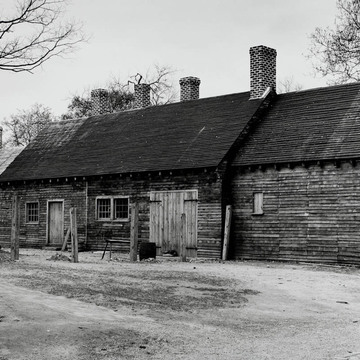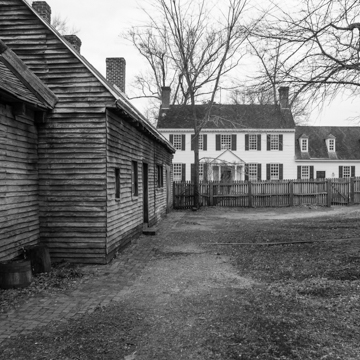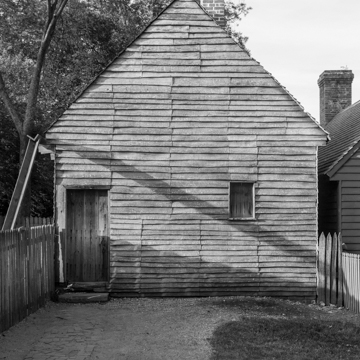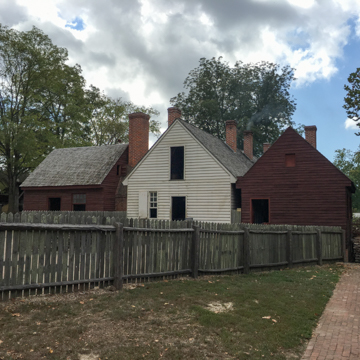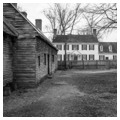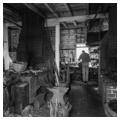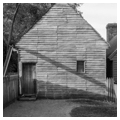The house and large rear building are reconstructions of the blacksmith James Anderson's house and shop, respectively. The house, a small group of outbuildings, and a boxwood garden were completed in 1940. Dramatic revisions followed additional archaeological excavations in 1974–1976. A new and larger version of Anderson's shop in its Revolutionary War guise was recreated, reproducing cheaper construction techniques that received increased scrutiny from a new generation of scholars in the 1970s and 1980s. The new shop was intended to represent both the extensive nature of wartime ironworking in Williamsburg and the character of relatively unrefined buildings built in the eighteenth-century Chesapeake.
You are here
James Anderson House and Blacksmith Shop
c. 1770–1780. 1940, reconstruction, Department of Architecture. 1985–1986, restoration, Dell Upton and Department of Architectural Research, Colonial Williamsburg. Duke of Gloucester St. west of Botetourt St.
If SAH Archipedia has been useful to you, please consider supporting it.
SAH Archipedia tells the story of the United States through its buildings, landscapes, and cities. This freely available resource empowers the public with authoritative knowledge that deepens their understanding and appreciation of the built environment. But the Society of Architectural Historians, which created SAH Archipedia with University of Virginia Press, needs your support to maintain the high-caliber research, writing, photography, cartography, editing, design, and programming that make SAH Archipedia a trusted online resource available to all who value the history of place, heritage tourism, and learning.




















